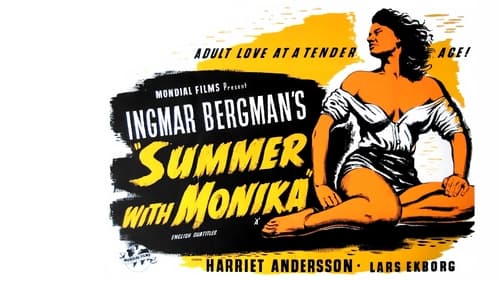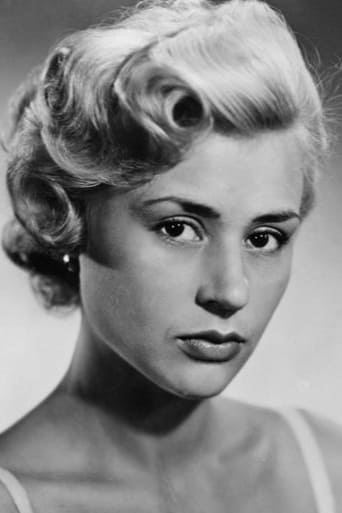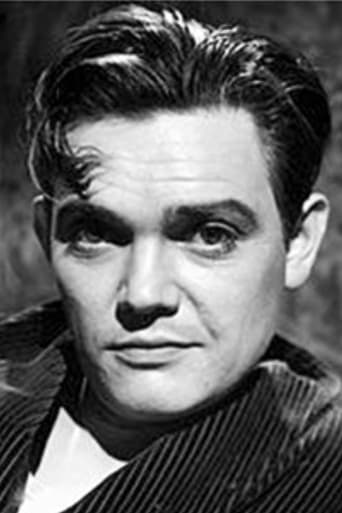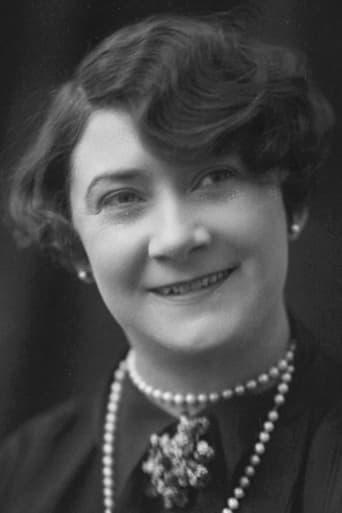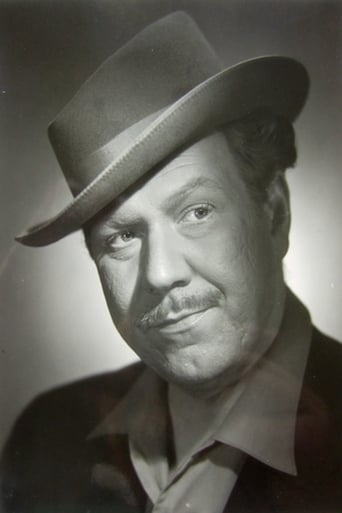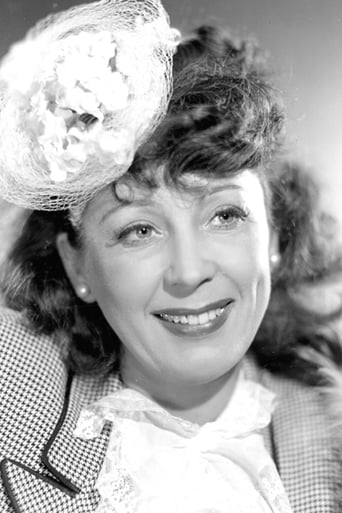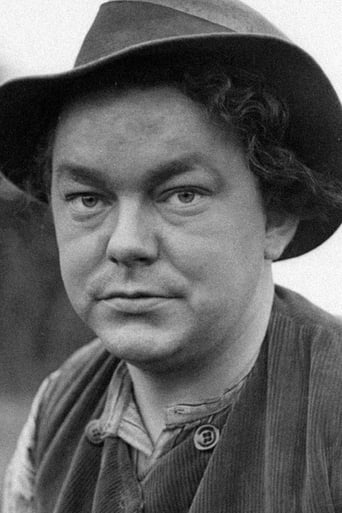Console
best movie i've ever seen.
Beystiman
It's fun, it's light, [but] it has a hard time when its tries to get heavy.
Matrixiole
Simple and well acted, it has tension enough to knot the stomach.
Staci Frederick
Blistering performances.
gizmomogwai
Now the earliest film I've seen from Bergman, Summer with Monika has Harriet Andersson in the title role, before she went on to star in Bergman's classic Through a Glass Darkly (1961). I don't feel Bergman really found his groove until 1957 (The Seventh Seal and Wild Strawberries), but Summer with Monika shows the rising director had some promise.The main problem I have with this one is that it doesn't really take off until half way through; little seems to be happening in the beginning, just a young man frustrated with his job, in love with a girl others call a "slut." It lacks the magic and complexity Bergman mastered with his 1957 films, Persona and number of other later works. Eventually the young lovers escape their dreary existence to live outdoors; at first it seems idyllic, a summer fantasy. Monika gets naked (yes!) and we can't blame our hero for impregnating her. It's here where the challenges begin; they have to feed her, but she's unwilling to go back to town. When they have no option, he labours with his studies and struggles to pay the rent, while she finds herself lacking fine things.As the conflict heats up, the film becomes more interesting. If this had been a simple story of young love, a dreamy summer, and a happy ending, there would have been little memorable about it. Summer with Monika is kind of a warning that a summer of screwing around doesn't always lead to the best consequences (which flies in the face of attempts to glory in such behaviour, like Kid Rock's "All Summer Long" song). But Harriet Andersson's nudity is also a highlight- rare for this era of cinema, and she looks great.
FilmCriticLalitRao
It is known to most erudite cinema viewers that Swedish director Ingmar Bergman's major films are synonymous with complex themes namely death, marriage, male/female relationships and religion. Summer with Monika is a minor albeit famous work in Bergman's filmography. It continues to be known due to its scenes of eroticism. This is one reason why for inveterate Bergman admirers this film might turn out to be a trifle. However, this argument does not mean to suggest that "Summer with Monika" would be viewed with indifference by new viewers making a foray into Bergmanian world of viewing things which make sense in life. These viewers would greatly appreciate the fact that Bergman chose to speak about difficult things in life through youngsters who experience various hardships in life. One gets to see how problems are further aggravated for a young boy and his girl friend due to troubles at their respective homes.Although the marriage of two youngsters might be construed as the prime focus of this film, Bergman goes beyond the plain depiction of marriage by showing that the real test of a couple's married life begins when they start to face problems in their lives.
IMDBcinephile
This is Bergman at his most sublime. He is self-aware again when he makes Monika utter "You're like a film, Harry" (paraphrased) - and this is the point where I knew "Summer of Monika" was going to be a great film. I was a little disheartened when I was watching "Secrets of Women" (I'm not a big fan of the movie); I did get enraptured by "Smiles of a Summer's Night" but it still wasn't him at his most adroit.Now, finally getting to watch this movie reminded me how amazing he was. The framing, the chiaroscuro lighting and all based on the study of what seems like two pariahs in their own society; Monika, who works as a grocer doing menial tasks to earn a living and Harry who works also, but who has a Dad who has ailments and a Mother who deceased when he was 8. Monika feels frightened in her own kinship and Harry is ready to go adrift into the Summer. They both become one, and then we segue into their departure to another place. "If they want to keep us apart, then we'll leave them" as Monika says, proving that we're still watching adolescents who want to free them selves from the frustration of conformity. Monika was abused by her Father and made an instinctive decision to go with him to the other side. As the movie goes on consecutively, we're then treated with the views beyond the sea. The cinematography is a marvel, as we see from the POV shots which set up the beauty. I always think that the set up of window dressing, will give us plenty of time to become accustomed to the life akin to turbulence and anguish; in the ending, he reminisces on this, when he mirrors into himself parallel into his past... he is unfortunately occupied with the Baby, and now sees nothing of prudence to look forward to.It is a deep, darkening and rather imbued experience through the struggles mixed between the life going through swimmingly. Bergman also gives us a sense of a celestial body with the shots of the sky, which seem very emblematic, although I'm not sure what of. It is one of those excursions that subjects you to a fresher form of the bittersweet. The closeups are not made from the caricatures of their characters - when Harry gets a closeup shot he contorts his face with more emotion, and a real sense of a saturnine guy, who was tamed by a Woman, and is now toiled with the trouble of premature adulthood. It doesn't preach it, but it makes you feel it; he becomes like her Father eventually and it then veers away from the path that we can all aspire for... the feeling of waves swaying back and forth and the freedom to do whatever you want. As Monika says "I don't ever want to go away from there" (paraphrasing), and yes, it is just one of those woes. "Summer with Monika" is not a cutesy, rom-com like you would be used to it. It is a Ingmar Bergman romance - watch his other movies like "Summer Interlude", "Through a Glass, Darkly" and "Persona" and then watch this movie that was made 2 years after "Summer Interlude" and predates the latter; you will be seeing a spectacle and a truth, perfection is now nonsense. Apart from the perfections of this one man's fable.
johnnyboyz
Summer With Monika is an engaging and really rather well made film about two young people refusing to confront life's problems before going on to run away with each other from each of their respective troubles. Where they escape to is a safe haven that they believe will cover up certain life shortcomings, legendary Swedish director Ingmar Bergman's 1953 film effectively a cautionary tale about the pratfalls or dangers of escape into alternate states of mind or being seemingly cut off from the rest of the world; the troubled waters that the inability to deal with issues that need affronting lead onto, here born out of isolating oneself from society that only further leads to nastiness and dishevelment. I read that people mark it in particularly high regard as a "kitchen sink drama", perhaps the world's first, indeed only, kitchen sink drama that is almost wholly set within the confines of a wood. In essence, the film is a remarkably well played romance picture; but with a biting edge of dread and rebellious rage, between two people not coming together out of cultural indifference's, but classist and marginalised ones; people whom bid to turn the tables on the perpetrators of their sufferings, an event which spawns a taut and pent-up piece rich in drama and tragedy and is certainly worth seeing. We begin in a docklands area of Sweden's capital Stockholm, the film's two principal characters existing in very close proximity as they live out their lives of occupying that of a dead end job by day and a downtrodden life at home by night. Young Harry (Ekborg), a boy working within some kind of private company specialising in proclaim production and distribution, seems dwarfed by the rest of the world as he rides along a busy road on his motorcycle going about his business; a chance encounter at a café with the equally young titular Monika (Andersson) leads to an exchange seeing Harry struggle to activate a lighter so as to ignite her cigarette; a kind of antithetical exchange to a character in a film that features the cocksure male waltzing into a bar (or café or similar place of nourishment) and immediately being able to turn on the charm in lighting a woman's cigarette before the dialogue begins. Harry is nervous, that sense of having not before been around many girls prominent – that sense of being unable to function in Monkia's presence equally so.However, their quaint exchange does, in fact, lead to a date at the cinema; a rendez-vous which goes well in that they kiss at the be all and end all of it contrasted only by Monika's sitting in her seat in floods of tears at the finale of the film grossly contrasted to that of Harry's more nonplussed reaction – where the two are highly indifferent in this sense, one thing they appear to crave over all else is escape from what they would have been suffering at home had they not gone as well as the mere item of each other's company. In each of their respective lives, issues with authoritarian figures and the severe disenchantment with working to a fixed schedule which does not at all fit in with either youngster's ultimate wishes dominates proceedings; Monika detests her life at home with her pre-adolescent younger brothers and often drunk father, the sexual harassment at work at the hands of her male co-workers a further straw on the already creaking back of a rather worn camel.Their deciding to 'up' and leave everything behind, in doing so stealing Harry's father's boat, sees the pair of them escape the world they inhabit and dart off to a sunny, isolated and rather beautiful island a motor boat ride from the mainland. The island is their Eden, a rock in the sea occupied by the cries of equally free and soaring gulls as well as jagged rock formations that have been carved naturally out of the edges of this stretch of land. This island is now housing two young and free people occupying a place free of anything they take a disliking to: where there were time-frames and rules, there is the ability to oversleep; where there was the danger of being caught by respective people in that of parental roles, there is the freedom to engage in frank sexual escapades without worry; where there was a grip they were forced to live in at the hands of confrontative and authoritarian figures, there is the ability to work together and defeat people of this confrontative and authoritarian ilk at their own game.Feeding off of Bergman's previous film, Summer Interlude, the film is peppered with this wry sensation of things just not going anywhere in particular other than to rife emotional anarchy; a sensation established when it appears Harry and Monika are aware of what might be brooding back home; their money situation and what lurks in the future as they ponder just how long they can keep this up, but do not appear to have much in the way of answers for now. These two characters exist where it is they spontaneously travel to, but that is all they do; there is no greater extent of a plan amidst their actions nor the proceedings, merely a wallowing in a newfound sense of independence and strength that only delays the inevitability of having to eventually confront one's problems – problems which systematically opens up routes to all sorts of newfound ones that the film additionally goes on to include. The film, predating that of the likes of the equally substantial Badlands and everything which came along as a result of that, is a fine character driven drama about people caught living in a state of stasis away from reality that they mistake for life's answer.


